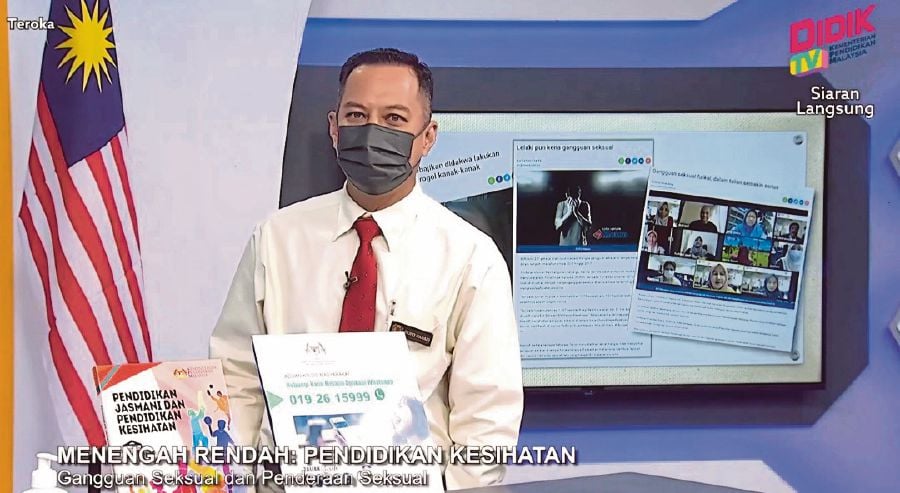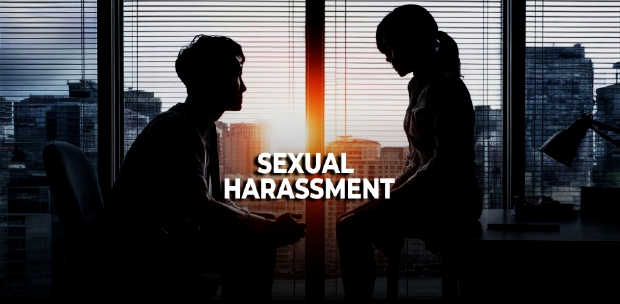Several years ago, a young friend asked me: "In some WhatsApp groups which I belong to, lewd pictures and messages are sometimes posted.
"I'm not comfortable about it. Is this sexual harassment?"
I had wondered then if our schoolchildren possessed similar doubts. And where they got their answers from.
The answer came recently to me in an episode of DidikTV KPM's Teroka. This fact may not be known to many, but sexual harassment, or how to deal with it, has been in the secondary school syllabus since 2017.
Pendidikan Jasmani dan Kesihatan is the vehicle for the message. But what exactly are the children taught?
Cikgu Hanafi, with 30 years as an educator under his belt, provided some insights. It's all about learning to say "no" to sexual harassment, he said on Teroka.
Now, the women, family and community development minister says an anti-sexual harassment bill will be tabled in Parliament by the end of the year. And I guess a good number of adults think they already know what sexual harassment is all about.
Having said that, we should take the trouble to listen to what our children are learning. We may pick up a thing or two. And perhaps be able to honestly say if our own actions at home and at work proclaim our innocence or guilt in this grave matter.
Back to Cikgu Hanafi's lesson then. He told his virtual and TV audience there are several forms of sexual harassment.
These include lewd comments, sending pornographic content to another person on the smartphone, touching someone with the intention of causing discomfort, sexual gestures and exerting psychological pressure on a person.
How many of these have you experienced yourself, either as a victim or a doer of the action?
Several illustrations were offered in the programme. An old woman is helped across the road by a young boy. In gratitude, she strokes his hair. In another instance, several people stare hard at a woman in a mall.
Cikgu Hanafi told the students attending Teroka virtually that they have to be discerning. The abovementioned examples are not sexual harassment. Why?
Firstly, there is a "safe touch" and an "unsafe touch". Touching the head is okay, but not the shoulder and below.
Moreover, the environment in which the touching or staring occurs must be properly understood. The mall is a public place and the people may merely be admiring the woman's dress sense. And if a teacher-coach attends to a female student who injures her leg in a hockey match, he can hardly be accused of untoward behaviour.
But if a man looks at a woman intently, licking his lips, or if a person makes negative comments about another's body parts, specifically the sexual organs, it is sexual harassment.
Cikgu Hanafi had a chilling message for everyone. Most times, the culprit is someone known to the children. And the victims are not exclusively female.
The key thing is to be brave, he said. The students were told they must talk to their parents or someone they can trust if they experience such harassment.
Or call the hotlines that are deployed for this purpose. Bottling up feelings is a no-no as this may lead to mental health issues. Surely we don't want that to happen.
So, if a person feels uneasy about videos or pictures posted in WhatsApp groups, and asks us about it, we should know what to tell him, right?
The writer is NST Production Editor
The views expressed in this article are the author's own and do not necessarily reflect those of the New Straits Times






